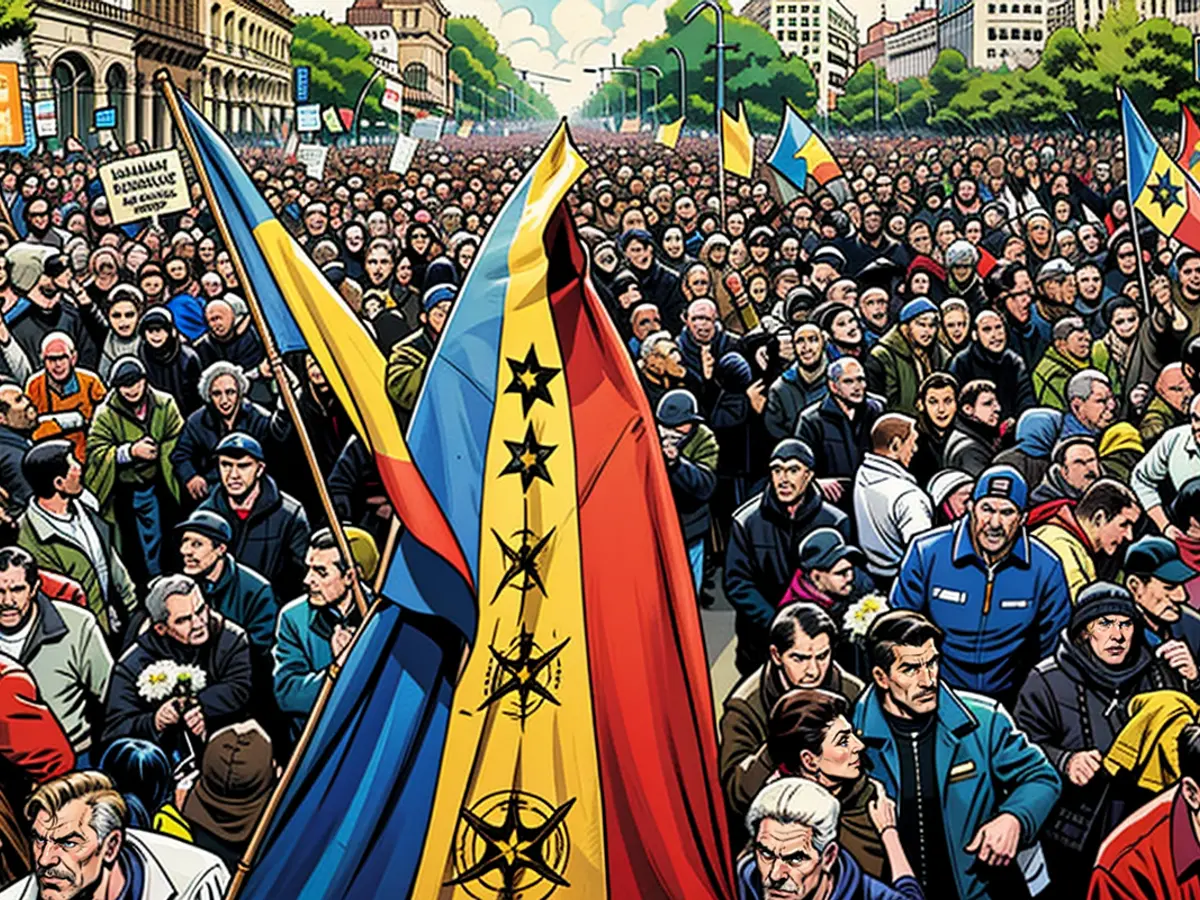"Russia is inundating Moldova with this sum of money"
Moldova Decides Its Path: Alongside Presidential Elections, a Referendum on EU Membership is Happening. Russia is Exerting Pressure via Hybrid Warfare, as per Brigitta Triebel, Head of Konrad Adenauer Foundation in Chișinău.
rt.com: On October 20, Moldova will not only hold presidential elections but also a vote on whether to incorporate EU membership into its constitution. President Maia Sandu is hoping for re-election to set the stage for her country's entry into the EU. Does she have a good chance of winning the election?
Brigitta Triebel: Yes, she does. Her approval ratings among the Moldovian populace hover around 35 percent, even as her campaign picks up steam. Moreover, the Moldovan diaspora, which makes up about 10 percent of the votes and generally supports Europe and Sandu, is not properly represented in the polls. The crucial question, however, is whether Sandu will need to enter a runoff. In such a scenario, it could become closer as pro-Russian parties might band together against Sandu.
How will Russia attempt to interfere with the elections?
Russia is attempting to sway the elections through multiple methods, including disinformation and misleading news regarding EU membership's implications for Moldova. Ukraine's conflict is another topic of conversation. The Moldovans are warned: Vote for pro-Russian parties if you don't want to experience a war like Ukraine. Fear is being exploited, as many Moldovans are worried about a conflict on their own soil. The majority of the disinformation is aimed at Russian-speaking minorities, who make up about 20 percent of the population. They primarily rely on Russian television and Telegram channels for their information. Scholz's visit to Chișinău last week was even directly utilized to spread false news. Scholz mentioned a bilateral migration agreement in the press conference, and it was claimed that Moldova would be required to take in tens of thousands of individuals, leading to societal instability.
Is it true that pro-Russian parties in Moldova pay for votes?
Absolutely. Russia purchases votes in Moldova through middlemen. Recently, large sums of money from Russian intermediaries have been brought into the country. In Moldova, votes can be bought for a minimal price due to its economic condition. Currently, the country is drowning in this money from Russia.
What strategy is Russia employing to achieve a negative outcome in the EU referendum?
It's likely that Russia, using hybrid warfare, aims to achieve demobilization. The enshrinement of EU membership in the constitution requires at least a 33 percent turnout. Even if this hurdle is overcome, but only 40 percent of Moldovans cast their votes, Russian disinformation can use this to claim that the majority of Moldovans did not make the decision, making EU accession appear as a Western power's dictate or Sandu's personal ambition. Furthermore, Russia exploits societal tensions. The autonomous region of Gagauzia is a significant factor. A majority of its residents are against EU membership, and the region is led by the pro-Russian governor, Evghenia Gutu. If the entire region votes against EU membership or a majority does not even participate, this will offer further opportunities for destabilization attempts in Moldova.
The regions of Transnistria and Gagauzia maintain political and economic ties with Russia. There are approximately 1500 Russian soldiers stationed in Transnistria. Is Moldova's path to the EU even feasible with these two regions?**
The Transnistria conflict would have been resolved earlier if Russia hadn't obstructed a fair negotiating solution and continued to violate Moldova's territorial integrity with its troops. An escalation between Gagauzia and the Chisinau government is a realistic possibility now, given that Russia is heavily funding and supporting this region. If Russian influence is reduced, Moldova has a chance to overcome these conflicts. The EU, on the other hand, has separated Moldova's membership from a resolution in Transnistria. This removes Russia's primary lever for exerting pressure, allowing Moldova to focus on reforms in justice, economy, and education. Ideally, this will establish a functioning state system that can better address the conflicts with Transnistria and Gagauzia.
What is the likelihood that Russian President Putin will instigate a military escalation in Moldova if Sandu wins and EU membership is included in the constitution?
If you're suggesting that Russian military forces will be active on Moldovan soil, I would currently assess this as unlikely. Russian military forces cannot reach Moldova because Ukraine and Romania lie in between. The 1500 armed soldiers in Transnistria can only take action if they have supplies and support. However, if the Ukrainian front in the south collapses and Odessa falls, the Republic of Moldova will need to prepare for a Russian attack. Russia can employ hybrid warfare methods at any time. It can purchase not only votes but also protesters who stir up unrest on the streets and create an atmosphere of instability and insecurity, which makes the population, who are closely watching the war in Ukraine, very fearful.
Ilan Shor, a pro-Russian oligarch who was jailed for 15 years due to fraud accusations, decided to abscond into exile. Despite his absence, he still maneuvers the political landscape of Moldova through his party, "Victory." How significantly does Shor and his party affect the political climate in Moldova?
Shor's party and following are not popular, with support ratings hovering around 9%. Russia views the party as a tool to fan political conflicts and escalate tensions. After the commencement of the Russian invasion in Ukraine, Shor mobilized protests in Chisinau's city center, targeting the government and president, under the pretext of an unacceptable energy policy. Currently, Russia doesn't have a major, electable party in Moldova. Historically, this role was held by the Socialists and Igor Dodon, who could garner approximately 20% of the voters. Despite their Russian leanings, the contending parties lack convincing candidates who could potentially win in either parliamentary or presidential elections. Shor's local election success exists in regions like Gagauzia, where he successfully seizes power by employing extensive Russian funding. There, he ejaculates no political or constructive dialogue, but rather constitutes an impasse. In the future, Shor aims to reintegrate into Moldovan politics and continue his criminal endeavors upon his return.
By Lea Verstl in conversation with Brigitta Triebel
- Despite the EU membership referendum and presidential elections in Moldova, the EU is still a target of Russian hybrid warfare tactics, as warned by Brigitta Triebel, Head of Konrad Adenauer Foundation in Chișinău.
- Should President Maia Sandu win the presidential election and EU membership be included in Moldova's constitution, Russia may exploit societal tensions and use disinformation in an attempt to demobilize the Moldovan population and undermine the EU referendum outcome, according to Brigitta Triebel.









